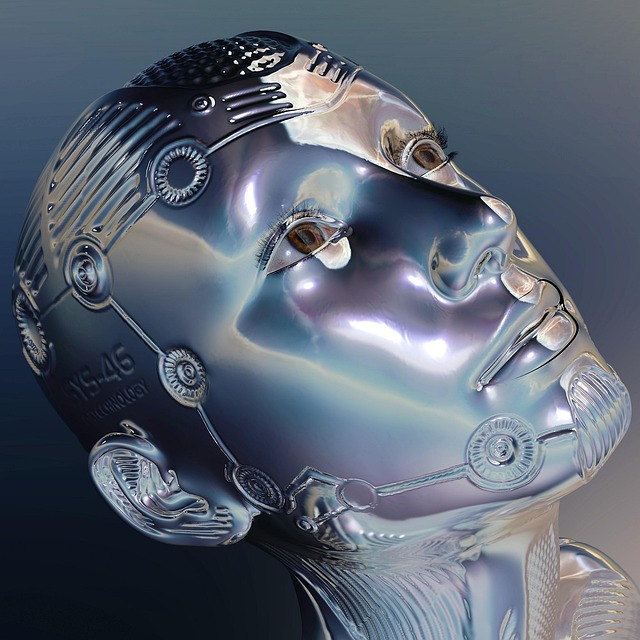
Künstliche Intelligenz in der Bildung: Veränderung der Zukunft des Lernens
Künstliche Intelligenz (KI) verändert sich schnell in verschiedenen Sektoren, und Bildung ist keine Ausnahme. Die Integration von KI in Bildungsumgebungen verspricht, Lehr- und Lernprozesse zu revolutionieren und personalisierte Erfahrungen und administrative Effizienzsteigerungen anzubieten. Dieser Artikel befasst sich mit den vielfältigen Auswirkungen der KI auf die Bildung und untersucht seine Vorteile, Herausforderungen und zukünftigen Auswirkungen.

Der Aufstieg der KI in der Bildung
KI -Technologien werden weltweit zunehmend in Bildungseinrichtungen übernommen. Von personalisierten Lernplattformen bis hin zur Verwaltungsautomatisierung wird KI zu einem integralen Bestandteil der Bildungslandschaft. Die Vereinigten Staaten haben beispielsweise die Bedeutung von KI für die Bildung anerkannt, wobei Initiativen darauf abzielen, die KI -Alphabetisierung unter Studenten und Pädagogen voranzutreiben. (whitehouse.gov)
Vorteile der KI in der Bildung
Personalisierte Lernerfahrungen
AI ermöglicht die Erstellung von adaptiven Lernsystemen, die den individuellen Bedürfnissen der Schüler gerecht werden. Diese Systeme analysieren die Lernmuster und passen die Bereitstellung von Inhalten entsprechend an, um sicherzustellen, dass jeder Schüler eine maßgeschneiderte Bildungserfahrung erhält. Beispielsweise können AI-gesteuerte Plattformen Bereiche identifizieren, in denen ein Student kämpft, und zusätzliche Ressourcen oder Übungen bereitstellen, um diese Lücken zu beheben. (princetonreview.com)
Verbesserte Unterstützung bei Lehrern
Pädagogen können KI nutzen, um Verwaltungsaufgaben wie das Einstieg und Planen zu automatisieren, sodass sie mehr Zeit für die direkte Engagement der Schüler widmen können. KI -Tools können auch dazu beitragen, personalisierte Unterrichtspläne und -bewertungen zu entwickeln und Lehrer in ihren Unterrichtsfunktionen weiter zu unterstützen. (princetonreview.com)
Verbesserte Zugänglichkeit und Inklusivität
AI hat das Potenzial, Bildung integrativer zu machen, indem sie Tools bereitstellen, die die Schüler mit unterschiedlichen Lernbedürfnissen unterstützen. Zum Beispiel können AI-betriebene Anwendungen den Schülern mit Behinderungen unterstützen, indem sie maßgeschneiderte Lernmaterialien und Echtzeit-Feedback anbieten und damit gleiche Lernmöglichkeiten für alle fördern. (idra.org)
Herausforderungen und Überlegungen
Datenschutz und Sicherheit
Die Implementierung von KI in der Bildung beinhaltet die Erfassung und Analyse großer Mengen an Studentendaten. Die Gewährleistung der Privatsphäre und Sicherheit dieser Daten ist von größter Bedeutung, um das Vertrauen aufrechtzuerhalten und rechtliche und ethische Standards einzuhalten. (onlineprograms.education.uiowa.edu)
adressieren Vorurteile in KI -Systemen
KI -Systeme können versehentlich vorhandene Vorurteile in ihren Schulungsdaten verewigen, was zu unfairen oder diskriminierenden Ergebnissen führt. Es ist entscheidend, KI -Tools zu entwickeln und zu implementieren, die streng auf Fairness und Inklusivität getestet werden. (onlineprograms.education.uiowa.edu)
Eigenkapital beim Zugriff auf KI -Ressourcen
Nicht alle Schüler haben gleichermaßen Zugang zu KI-angetriebenen Bildungsinstrumenten, die bestehende Bildungsungleichheiten verschärfen können. Es müssen Anstrengungen unternommen werden, um sicherzustellen, dass AI -Ressourcen für alle Schüler unabhängig von ihrem sozioökonomischen Hintergrund zugänglich sind. (idra.org)
zukünftige Implikationen
entwickelnde Bildungsrollen
Wenn sich die KI weiter in die Bildung integriert, wird erwartet, dass sich die Rollen von Lehrern und Schülern weiterentwickeln. Pädagogen können von traditionellen Lehrmethoden zu Lernerfahrungen übergehen, die KI-Technologien nutzen und kritische Denken und Fähigkeiten zur Problemlösung unter den Schülern fördern. (whitehouse.gov)
lebenslanges Lernen und KI -Alphabetisierung
Der schnelle Fortschritt von KI unterstreicht die Bedeutung des kontinuierlichen Lernens. Bildungssysteme müssen sich anpassen, indem sie KI -Alphabetisierung in Lehrpläne einbeziehen und die Schüler auf eine Zukunft vorbereiten, in der KI allgegenwärtig ist. (whitehouse.gov)
Abschluss
Künstliche Intelligenz verfügt über ein transformatives Potenzial für den Bildungssektor und bietet personalisierte Lernerfahrungen, verbesserte Unterstützung von Lehrern und eine verbesserte Zugänglichkeit. Es ist jedoch wichtig, Herausforderungen im Zusammenhang mit Datenschutz, Verzerrung und Eigenkapital zu bewältigen, um die Vorteile der KI in der Bildung vollständig zu erzielen. Durch die sorgfältige Integration von KI in Bildungspraktiken können wir eine integrativere, effizientere und effektivere Lernumgebung für alle schaffen.